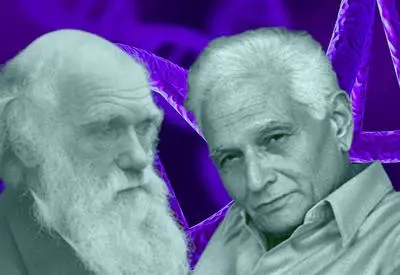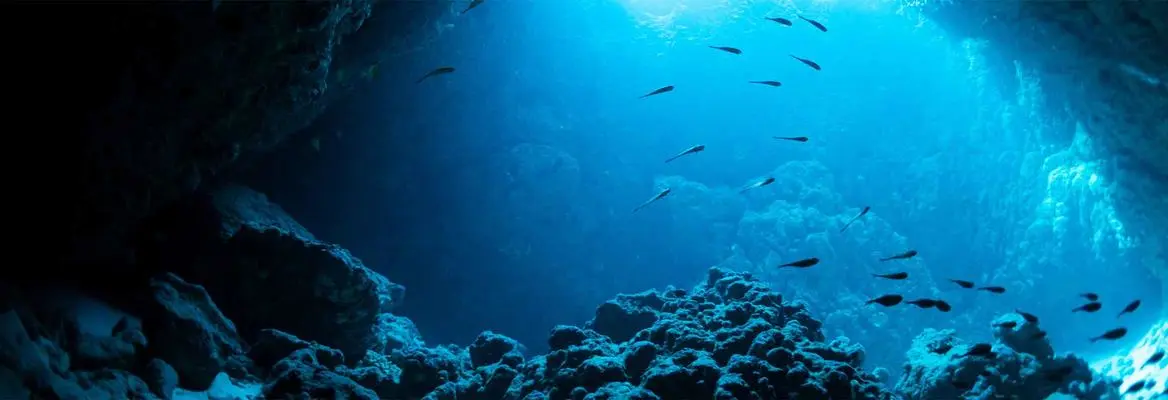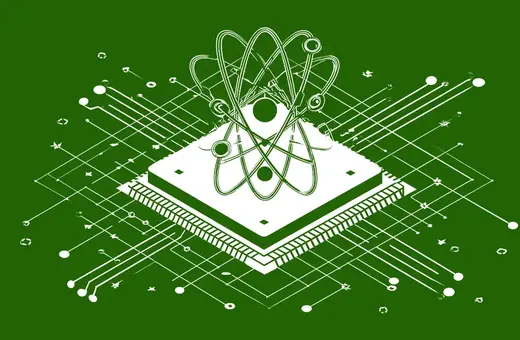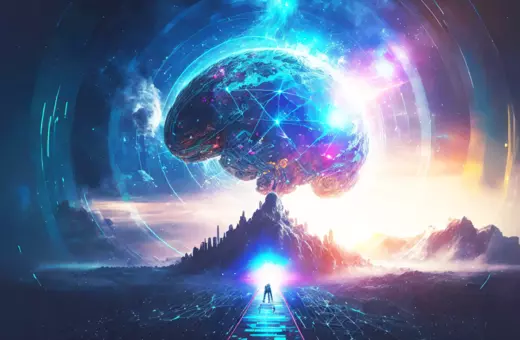Cultural perceptions of the ocean as a void or an empty space give a grave misrepresentation of the ocean's true nature. Contrary to the idea of emptiness, the ocean is an intricate, dynamic engine of the Earth teeming with diverse life and physicochemical processes, writes Helen Czerski.
"Other maps are such shapes, with their islands and capes!
But we've got our brave Captain to thank
(So the crew would protest) "that he's bought us the best—
A perfect and absolute blank!"
Lewis Carroll, “The Hunting of the Snark”
The Hunting of the Snark was published in 1876, in perhaps the last year the western world could claim to be ignorant of the reality of the global ocean. It was written during the four years when HMS Challenger was criss-crossing the globe (1872-1876), engaged in the first dedicated global oceanographic research expedition. When Challenger returned, it would shock the London scientific establishment with mountains of data showing how deep the ocean is, how alive it is and how intricately structured it is. And yet the sentiment that Carroll expressed – that the ocean is most conveniently seen as a perfect and absolute blank – still dominates our cultural ideas about the blue of our blue planet. We still see the ocean as an absence rather than a presence, or perhaps on a good day as an obstacle or a trash can. When we think we’re talking about the it, we are almost always actually talking about fish, whales or plastic, as though the ocean is only valuable as a canvas on which other stories are written. But this is a gigantic misrepresentation. The ocean itself is the biggest story on Earth, and all the other tales are merely small whorls inside a far greater drama.
 SUGGESTED READING
From Darwin to Derrida: evolution as interpretation
By David Haig
SUGGESTED READING
From Darwin to Derrida: evolution as interpretation
By David Haig
It's handy to have a void around. We can park in it all the thoughts and feelings that are too big for us to deal with. We can stare out from the coast and feel small against its immensity, feeling comfort in knowing that there’s something big and mysterious out there, because then it’s somehow ok if we haven’t got everything under control in our own lives. A void looks like freedom from the constraints of land, freedom from rules, the reassurance that it doesn’t have to be like this. The real void, one that we can all see, is outer space, which goes on for millions and billions of light years and really is almost completely empty. But we can’t touch it and we can’t take even one step into it, so it’s not the same. The ocean is a nice relatable void. The problem is that we can’t afford to keep hiding from an important truth: the ocean isn’t remote and disconnected – it’s part of here, part of us, in a very literal way.






















Join the conversation